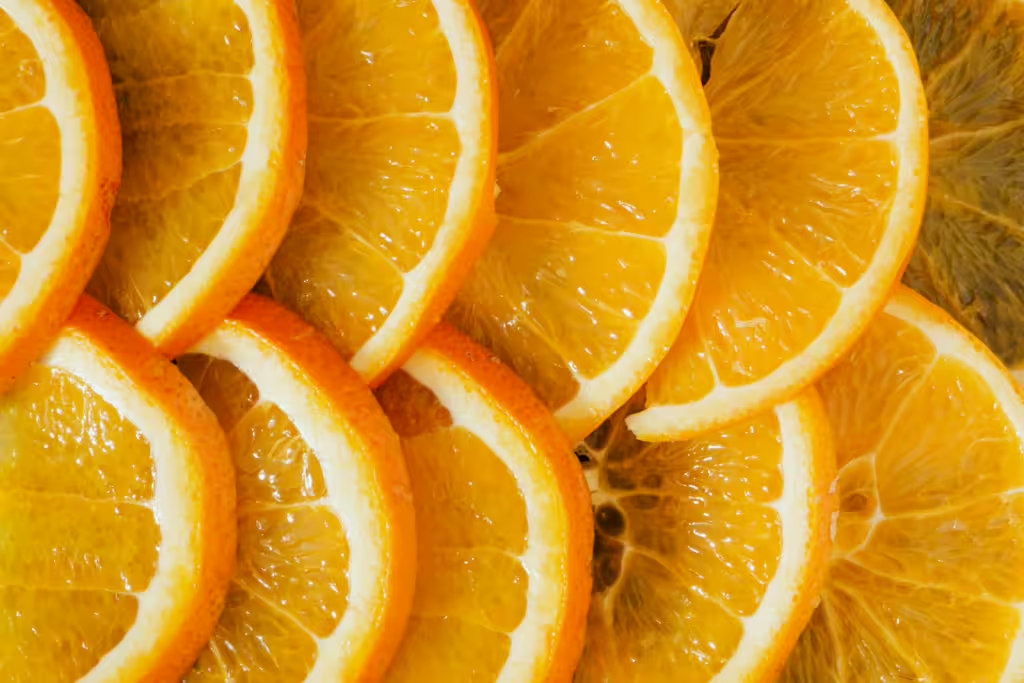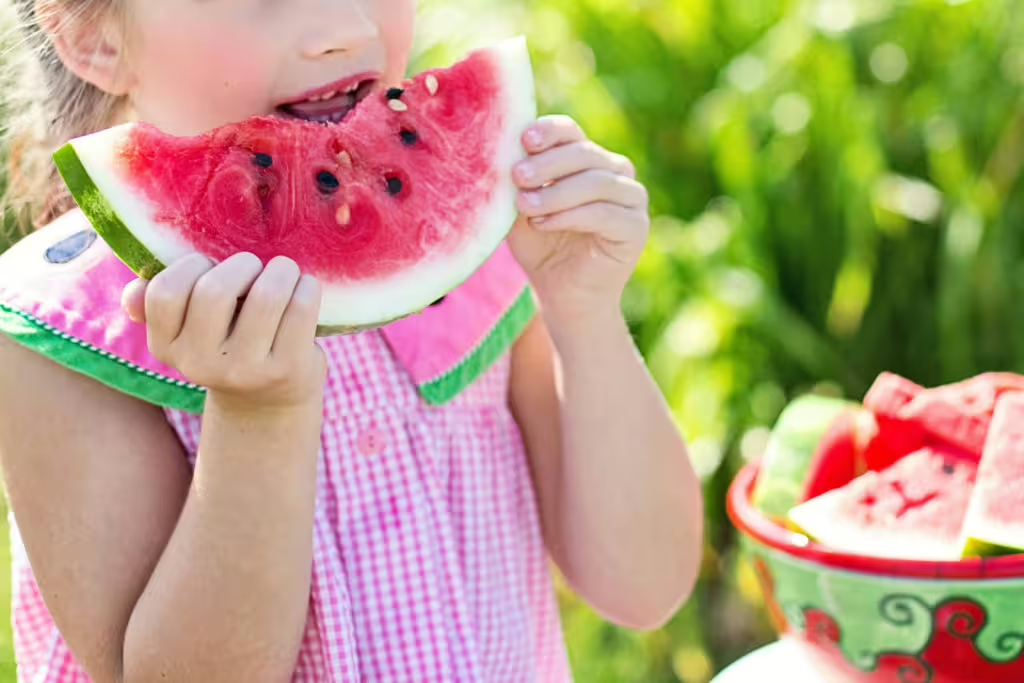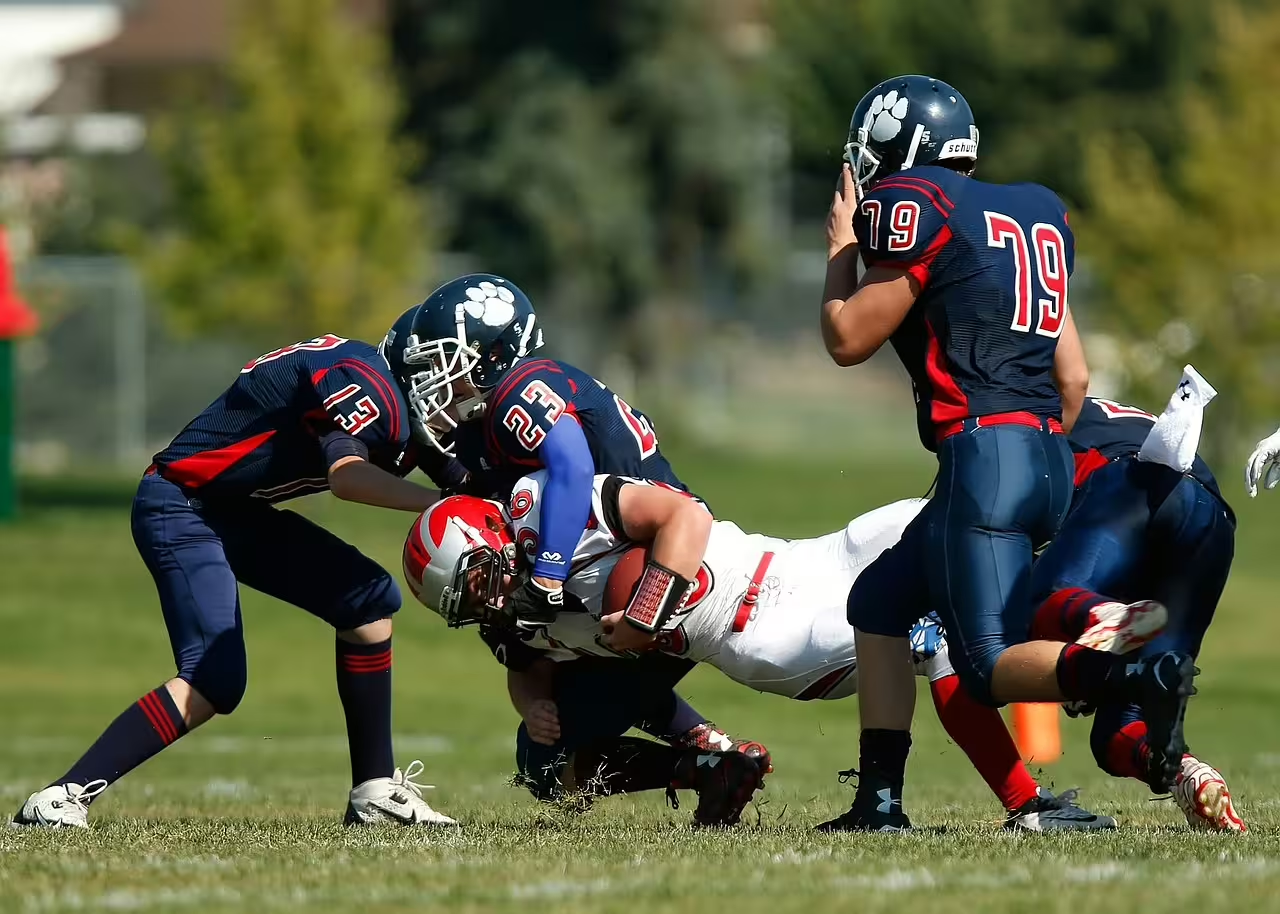For young athletes, getting proper nutrition is just as important as getting enough practice time. Growing bodies require more than just physical, mental, and emotional stimulation, they need a steady supply of energy and nutrients in order to facilitate necessary growth milestones. In terms of sports, getting proper nutrition allows young athletes to power through games, ace practices, and meet the overall demands of daily life. The key to success in this area is serving your children and teens a combination of balanced meals and healthy snacks. That way, kids can perform at their best on the field or court and focused during school. Also, having proper nutrition will help them recover faster at the end of the day.
In this guide, we will give parents a glimpse into the ins and outs of proper nutrition. At the same time, we will offer up a slew of nutritious snack and meal ideas to keep young athletes energized and thriving. So grab a snack pack and dig in, we’re about to get started!
Why Nutrition Matters for Young Athletes
Despite what many wrong-headed people would have you believe, athletic performance isn’t just about skill and training; it’s fueled by the food that we eat. This concept is especially pertinent when it concerns chil athletes, who need proper nutrition for every facet of their growing lives. Proper nutrition provides:
- Energy for Performance: Kids may seem like they have boundless energy, but they get that from eating certain foods. Healthy carbohydrates, proteins, and fats are used by the body to fuel activity and keep kids energized.
- Growth and Recovery: Many tenets of modern nutrition seem to have a renewed focus on protein, and for good reasons. Protein supports muscle repair and growth, this is especially important after games or training.
- Focus and Mental Clarity: One of the main focuses should be on nutrient-rich foods, like superfoods. These foods promote brain health, aiding in decision-making and concentration during gameplay.
- Hydration and Endurance: Hydration is key in sports and nutrition, so foods with high water content and essential minerals like potassium and sodium are crucial. These foods help maintain hydration and prevent cramping.
Essential Nutrients for Young Athletes
A balanced diet is key for young athletes. Here are the main nutrients that children who play sports need, as well as some of the easiest places to find them:
Carbohydrates: Provide quick energy, carbs are most often found in whole grains, fruits, and starchy vegetables.
Protein: Supports muscle recovery. Children who eat lean meats, eggs, dairy, nuts, and legumes should get a good mix of essential proteins.
Fats: Long-lasting energy. You can find these in avocados, nuts, seeds, and fatty fish.
Vitamins and Minerals: Essential for overall health. These compounds can be found in fruits, vegetables, and whole foods.
Hydration: Water is crucial, but electrolyte-rich drinks or snacks like watermelon and oranges are often doubly efffective.

Pre-Game Meals: Fuel for Energy
It isn’t just about daily meals, especially when it comes to sports, in particular. Eating the right foods before a game ensures children have enough energy to perform at their best. Parent should aim to serve these meals 2-3 hours before your kid engages in rigorous physical activity.
Whole-Grain Pasta with Lean Protein
- Why It Works: The carbohydrates in pasta provide sustained energy, while chicken or turkey offers lean protein for muscle support.
- How to Prepare: Toss cooked whole-grain pasta with grilled chicken, a drizzle of olive oil, and a sprinkle of Parmesan cheese. Add a side of steamed vegetables for extra nutrients.
Sweet Potato and Egg Bowl
- Why It Works: Of all the delicious complex carb you can eat, sweet potatoes are some of the best. They are rich in carbohydrates and potassium, which are perfect for energy and muscle function. Eggs supply high-quality protein.
- How to Prepare: Roast diced sweet potatoes, then top with a fried or scrambled egg. Serve with a side of avocado slices.
Turkey and Veggie Wraps
- Why It Works: Wraps made with whole-grain tortillas are easy to digest and easy to make! These also provide a tasty balance of carbs, protein, and fiber for growing kids.
- How to Prepare: Spread hummus on a whole-grain tortilla, layer with turkey slices, spinach, and shredded carrots, then roll up.
Post-Game Recovery Meals: Rebuilding and Rehydrating
After intense physical activity is just as important as before. In these moments, right after a game, it’s important that children replenish glycogen stores and repair muscles. These meals help kick-start that recovery process.
Grilled Chicken with Quinoa and Veggies
- Why It Works: Quinoa is a complete protein that’s become rather popular in recent years. It is also highly versatile and can be served with a number of different sides. Most importantly, it provides carbs for energy restoration while the addition of chicken helps rebuild muscles.
- How to Prepare: Serve grilled chicken over a bed of quinoa, topped with steamed broccoli and a squeeze of lemon for flavor.
Smoothie Bowl
- Why It Works: Smoothie bowls are delicious and can feel like a real treat for kids, especially after a hard game. This refreshing mix of fruits, yogurt, and toppings provides carbs, protein, and antioxidants for recovery.
- How to Prepare: Blend frozen berries, a banana, and Greek yogurt. Pour into a bowl and top with granola, chia seeds, and sliced almonds.
Salmon with Brown Rice
- Why It Works: Omega-3 fatty acids in salmon reduce inflammation in the muscles, while brown rice restores energy. It might be tough to get your kids to eat salmon if they don’t love fish, but give it a shot.
- How to Prepare: Bake a salmon filet with a touch of olive oil and seasoning. Serve alongside brown rice and a cucumber salad.
Snack Ideas for Energy Boosts
Snacks should be easiest food item for kids to grab and go. The items on this list provide kids with a quick burst of energy and are great options for pre-practice or during breaks.
Apple Slices with Peanut Butter
- Why It Works: Apples offer natural sugars for quick energy, and the added peanut butter provides a nice mix of protein and healthy fats.
Trail Mix
- Why It Works: This mix of nuts, dried fruits, and seeds can be customized to meet your child’s specific tastes. It offers a portable, nutrient-dense snack that can be made well ahead of time.
Greek Yogurt with Honey and Berries
- Why It Works: Greek yogurt is low in sugar and high in protein, while the berries contain antioxidants, making this snack perfect for recovery and giving a burst of extra energy.
String Cheese and Whole-Grain Crackers
- Why It Works: String cheese is good protein and fat, while the added carbs from the crackers provide a balanced energy boost.
Banana with Almond Butter
- Why It Works: Like the apples in the snack option above, bananas are a treasure trove of vital nutrients. These iconic fruits provide potassium to prevent cramping, while the almond butter adds protein and healthy fats.
Hydrating Foods and Drinks
Staying hydrated is another critical element for peak athletic performance. In addition to water, these options can keep kids hydrated while providing them with more flavorful choices.
Coconut Water
- Packed with natural electrolytes, coconut water is a great alternative to sugary sports drinks.
Watermelon Slices
- High water content and natural sugars make watermelon a refreshing post-game snack for any child, just don’t worry about them getting too messy.

Smoothies
- We touched on it earlier, but smoothies are a great choice for hydration too. Simply blend fruits, spinach, and a splash of milk or coconut water for a hydrating, nutrient-packed drink.
Orange Juice
- OJ is a natural source of vitamin C and potassium, making it ideal for recovery.
Cucumbers with Hummus
- Cucumbers are 95% water and make a great hydrating snack, they are also full of vital compounds like vitamin C, vitamin K, antioxidants, and fiber!
Dinner Ideas for Busy Weeknights
Balancing family dinners with busy sports schedules can be challenging for many parents. Fortunately, getting the right nutrition can be made pretty easy with meals like these. The meals below are quick, nutritious, and most importantly, kid-approved.
Baked Chicken Tacos
- Why It Works: Kids love tacos! They are interactive, customizable, and full of flavor. These whole-grain taco shells provide carbs, while the chicken adds lean protein. You could also use ground turkey instead of chicken.
- How to Prepare: Fill taco shells with shredded chicken, black beans, and cheese. Bake until warm and serve with salsa.
Veggie Stir-Fry with Rice
- Why It Works: Kids might not always love veggies, but this mix of colorful vegetables ensures a variety of nutrients with delicious, familiar flavors. The addition of rice adds energy-sustaining carbs.
- How to Prepare: Sauté broccoli, carrots, and bell peppers in a soy-ginger sauce. Serve over brown rice.
Spaghetti with Turkey Meatballs
- Why It Works: Spaghetti is an easy one, it’s a childhood favorite for many. This lighter twist on a classic, using turkey reduces fat while maintaining flavor.
- How to Prepare: Pair whole-grain spaghetti with homemade turkey meatballs and marinara sauce.
DIY Pizza Night
- Why It Works: Using whole-grain crust and fresh toppings makes pizza a healthy and fun meal. It’s also a great way for parents to spend time cooking with their kids. Teaching a child how to cook is a lesson that many parents overlook.
- How to Prepare: Top whole-grain pita bread with marinara sauce, low-fat mozzarella, and a mix of veggies. Bake until crispy.
Breakfast: Starting the Day Strong
Mornings are crucial for young athletes, especially on the days where they play actual games. These balanced breakfast options are easy for parents to make and provide kids the energy they need to kick off the day.
Overnight Oats
- Why It Works: Oats release energy slowly, keeping kids full and focused. You can make this ahead of time and customize it with a million and one ingredients….just don’t go too heavy on the sweet stuff.
- How to Prepare: Combine rolled oats, milk, and a dollop of yogurt in a jar. Add fruit and refrigerate overnight.
Veggie and Cheese Omelette
- Why It Works: Eggs are a great source of protein, and veggies add fiber and vitamins. The cheese is also a nice, flavorful source of added protein.
- How to Prepare: Whisk eggs and pour into a heated pan. Add diced tomatoes, spinach, and shredded cheese before folding.
Smoothie to Go
- Why It Works: Smoothies are here yet a again! This is cause they are tasty, easy to make, nutritious, and a quick option for busy mornings.
- How to Prepare: Blend a banana, frozen berries, Greek yogurt, and milk. Pour into a travel cup for an easy breakfast.
Tips for Parents
As a parent of a young athlete, ensuring they eat well can sometimes feel overwhelming, especially with busy schedules and the pressure to keep up with practices, games, school, and every other daily responsibility. However, by adopting a few simple strategies, parents can make healthy eating manageable and enjoyable for the whole family.
One of the best ways to ensure your child eats well is to plan snacks and meals in advance. This strategy eliminates the need for grabbing unhealthy, last-minute options like fast food or packaged snacks while you’re in a rush. Also, getting your kids involved in meal preparation is not only a fun bonding activity but an opportunity to teach them about the value of nutrition. This also ensures that they have the tools they need to do the same on their own as they get older.
By this point, any parents reading understand that a well-balanced diet is essential for fueling young athletes. This means striking the right mix of macronutrients—carbohydrates, proteins, and fats. Taking the care to do this provides sustained energy, supports recovery, and promotes overall growth and health in young athletes. Bear in mind that healthy eating doesn’t have to involve gourmet cooking or expensive ingredients, either. Simple, whole, minimally processed foods are often the best choices for nutrition and taste. Frankly, most kids tend to naturally prefer these over the processed stuff, they just need to relearn it.
Cultured Athlete Says…
As you can see, fueling young athletes is easier than you might think. By focusing on nutritious snacks and meals, parents can help their kids reach their full potential on and off the field. Hopefully the ideas in this article have helped kickstart your own plans for building in a new eating routine for your budding star athlete!
Discover more from CulturedAthlete
Subscribe to get the latest posts sent to your email.






